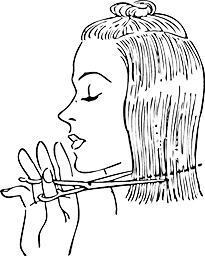Tax Deductions for Hair Stylists

Cutting and styling hair for a living can be a rewarding career. At tax time, you'll be required to report all of your income to the IRS, including any tips. Your employer will mail you a Form W-2, Wage and Tax Statement, which will list your income reported to your employer and tax withholdings. You aren't required to report tips less than $20 a month to your employer, but you do have to pay taxes on the income. You also have to report any non-cash tips or gifts, such as tickets to an event.
In some cases, hair stylists rent a chair from a business, which can make them self-employed. Self-employed stylists report their income on Schedule C, Profit or Loss from business.
At tax time, you can lower the amount you are required to pay in taxes by claiming deductions on any job-related expenses that are unreimbursed, such as:
- Cleaning and upkeep fees required uniforms, as long as they are not suitable for normal everyday wear. It's important that the clothing be an actual uniform, and not just streetwear, such as a white service uniform.
- Licensing fees and flat rate occupational taxes, as long as it's not initial certification
- Supplies such as scissors, combs, styling tools, shampoo
- Subscriptions to industry specific magazines or publications
- Liability insurance premiums
- Equipment maintenance, such as scissors sharpening
- Unreimbursed medical exams required by your employer
Any job-related training expenses may be deducted if the courses meet certain requirements. Refresher courses, those focusing on new developments, and vocational classes are usually deductible. If the classes are required to help you meet the minimum requirements of the job, or allow you to get a new occupation or career, the expenses of the course are not deductible.
If you work for an employer, you can deduct expenses on a Schedule A, Itemized Deductions, when you file your taxes. Self-employed stylists can deduct the expenses on their Schedule C. It's important to keep all receipts as documentation of expenses.



